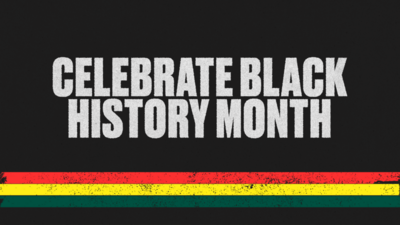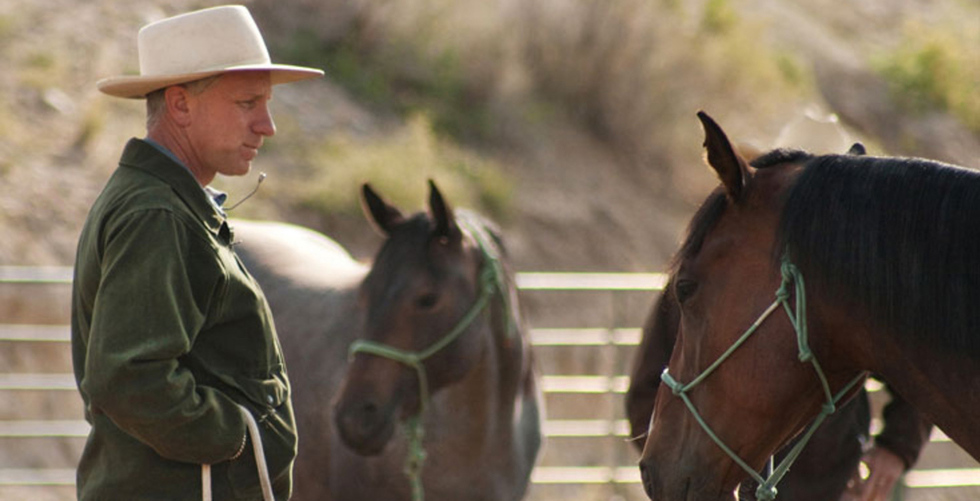
BY ZACHARY WIGON |
We Defy You Not to Love Buck
It's no wonder this doc about a gentle cowboy won an audience award at Sundance. We defy you not to be swept away by both the charms of the man and the subtle grace of the film.


In an era where documentaries are increasingly becoming more and more issue-oriented, angled to deal with various political topics that command doc attention (Eliot Spitzer’s fall, the financial crisis), the personal profile documentary—a soft, simple look at the life of an interesting figure—starts to become a harder sell. There isn’t a built-in audience awareness that is primed for such documentaries, as there is for issue docs, and they don’t command the same media attention. Nevertheless, they are still consistently made.
However, not often are they made with the gentle grace of Cindy Meehl’s Buck, a documentary about the man who inspired Nicholas Evans’ novel The Horse Whisperer, which became the Robert Redford film of the same name. Buck Brannaman came from a terribly abusive childhood to be the leading figure in the horse-training field, by employing a Zen-like approach to how to deal with damaged horses. The documentary evokes the similarities between damaged horses and damaged people with subtle, casual grace, evoking an interesting metaphor even as it refuses to be didactic or polemical in any way. I had the chance to sit down with the film’s first-time director, Cindy Meehl, recently.

Tribeca: The film is such an assured debut. How did you hone your craft and come to be so comfortable making the film?
Cindy Meehl: Well, it wasn’t comfortable in the beginning. [Laughs] I had the concept, I knew Buck, but I think it was very key that I surrounded myself with seasoned documentary-makers. My producer, Julie Goldman, worked on The Cove. There were countless others—people who worked on Grizzly Man, Man On Wire, The Tillman Story. It was a very creative group of women. Anything I do, I like to put creativity into it. I’m a very visual person. So I suppose I brought that to the table.
Tribeca: Right—I had read that you previously worked in fashion and in photography. Did your work in those fields help you here?
Cindy Meehl: Absolutely. I took classes with some really master teachers, and you learn that everything is a composition. You learn how to structure a rectangle, what works and what doesn’t—the energy within that frame. We were able to sometimes pull out audio and put it into better visuals, in editing, which to me was so important. Part of what Buck teaches you is: he works so hard, and he expects you to work so hard, and you would just never consider delivering a product to him that was half-assed.

Tribeca: Did you have a strong idea of what you wanted to deliver, in terms of the film’s theme and whatnot, from the start? Or did that come to you in the process of making it?
Cindy Meehl: I think I was aware of it to some degree from the start, but it became clearer as we made it. Before we started making the movie, I had only seen Buck three times, at a few different clinics. I had also read his book, which I found very inspirational. Meeting everyone around him—his wife, his foster mom, his daughter—helped make things clearer.
Tribeca: The film has a beautiful metaphor of the horses as people, of dealing with horses as an example of how to deal with people. When did you first realize that?
Cindy Meehl: It had come to me from working with him with horses. You would go home and there would be so many crossovers… in your everyday life. You would think of how horses react—you can’t beat anything into them—not that I would ever beat my child—but there’s ways of using that sensitivity, redirecting the energy.

He’s always saying that you have to redirect the energy: you have a ton of energy in a horse, [and] you have a ton of energy in a child. So you can either let that energy run wild, or channel it and give them some jobs and purpose. I’ve raised two girls, and I find that that works quite well.
And he also talks a lot about not making excuses. Someone brings a horse in and they say, “Well, he was abused, that’s why he has these problems.” That’s laughable to Buck. It doesn’t matter what baggage you bring in. He doesn’t care. You’re living in the moment. You don’t make excuses, you find out what you can do to fix it. He doesn’t want to hear this long-winded story about your horse and his past, because look at Buck and his past. It makes you tough.

Tribeca: What was your first impression when you met Buck? A lot of people seem to be cynical when they first meet him, about his abilities.
Cindy Meehl: Well, I come from English riding, hunter-jumper, and we think we know quite a bit, so you think, “He’s a cowboy, he’s going to do his thing, but I’m still going to do my thing.” But you realize pretty quickly that he’s teaching horsemanship—not polo or fox-hunting or jumping; he’s teaching how you communicate with a horse, period. Everything he’s teaching applies to you. I was very wowed and amazed, and at the same time, dismayed that I had spent so many years, in my opinion, doing it wrong.
Tribeca: Is that when the idea to make the documentary first crossed your mind?
Cindy Meehl: It wasn’t until I went to Texas, for the second clinic. Actually, I haven’t told this story to anyone. I had heard that they were going to make The Faraway Horses, his book, into a movie, possibly, and at the time it occurred to me that that would be a shame—well, not a shame to make the movie, but that people would see an actor trying to be Buck. There’s just no one on Earth who can really play Buck, in my opinion. You could never teach an actor that in a million years. He’s in a league of his own.

So in Texas the seed was planted, and three months later, I was in Montana, and we were eating outside, and he was sitting alone, waiting for the owner of the ranch to come over, and I just decided to seize that moment. It was one of those things that you could either let go, and it would never happen, or you could put it out there. So I just walked over and asked him if he’d be interested in doing a documentary, and he said, “Yeah.” He wrote down his phone number and I said I’d call him. It was very quick.
But that’s what I like about these people—if they say they’re going to do something, they do it. And once I said I’d do it, I had to figure it out. That was no easy feat, but I started the work right then.

Buck opens on Friday, June 17. at the IFC Center. Find tickets.
**Attention New Yorkers: the IFC Center is giving away free popcorn to anyone who brings their Dad this weekend!
Watch the trailer:
